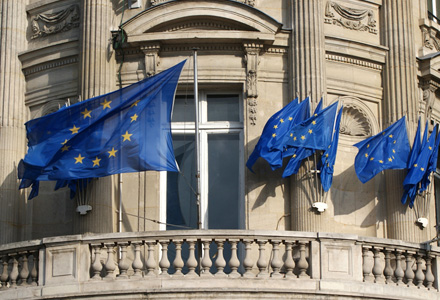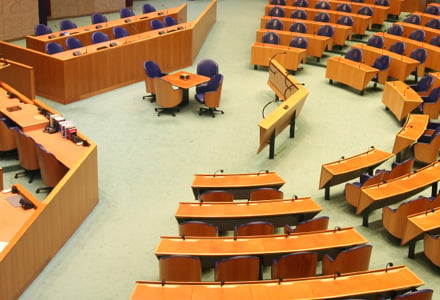Vragen FEE over nieuwe Europese regels auditmarkt
De Europese koepel van accountants FEE vraagt eurocommissaris Barnier in een brief om uitleg over bepaalde punten uit de nieuwe wetgeving voor accountants waarover het Europese Parlement en de lidstaten het in december eens zijn geworden.
De FEE is nog bezig met een gedetailleerde analyse van de teksten, maar wil, voorafgaand aan de definitieve vaststelling van de nieuwe richtlijn en verordening, alvast enkele punten onder de aandacht brengen die verduidelijking behoeven om een consistente implementatie in de lidstaten te bevorderen.
De vragen die de FEE in de brief aan Barnier voorlegt:
- Clarification on timing: what about the timing of the issuance of the documents, the translation, the publication in the official journal of the EU? What will be the different transitional periods applicable? What about the phased application of certain provisions?
- Clarification on the application of article 9 of the regulation on ‘audit fees': how does the calculation of the 70% over 3 years work? The provision governing the cap of 70% is open to multiple interpretations and should be explained further.
- Clarification on the application of article 10 of the regulation on ‘prohibition of the provision of non-audit services': what is the meaning of certain terms used like ‘any part in the management or decision-making'? We can also observe discrepancies between some language used in the recital and in the article, for instance with regard to the provision of due diligence services. There is a general demand for clarification as the provisions of the regulation must be unequivocal: practitioners should be left in no doubt about the definition or scope of prohibited non-audit services.
- Clarification on some options, including the ones in article 33 of the regulation on the duration of the audit engagement: what about cross border impacts of such measures? What if a group of companies based in one Member State has PIE subsidiaries in other Member States that have different rotation rules? Audit quality may suffer from inconsistencies in the implementation or divergent interpretations of such measures. The period set for mandatory audit firm rotation should also be compatible with the internal audit partner rotation, which is currently taking place every seven years in the EU.
- Clarification on the ISA adoption mechanism: according to the published text, the ISA adoption does not seem to be as straightforward as it could have been. Who is going to advise the EC for the delegated acts? It seems that the newly created Committee of European Auditing Oversight Bodies (CEAOB) would have a role in the ‘examination' of the ISAs in view of adoption. How would this work in practice? It is important that this does not result in carve-ins and carve-outs at the detriment of the internal market and an international level playing field. FEE has long promoted and continues to support a full European adoption of ISAs that is instrumental to sustain audit quality.
De FEE zal de komende tijd fact sheets uitbrengen over bepaalde onderdelen van de nieuwe wetgeving.
Gerelateerd

Big four en audit only
Een hogere auditkwaliteit, meer onafhankelijkheid en meer concurrentie. Dat moesten de uitkomsten zijn van de hervormingen die Eurocommissaris Michel Barnier – nu...
Slag in de rondte
Helpt verplichte kantoorroulatie de kwaliteit van de wettelijke controle wel vooruit? De stoelendans zou de onafhankelijkheid en de frisse blik van de controlerend...

Rapport brengt Europese auditmarkt in beeld
De Europese Unie telt ruim 250 duizend externe accountants, ruim 32 duizend accountantsorganisaties en 1.742 oob-accountantsorganisaties. De totale omzet van oob-accountantsorganisaties...
Aanpassing BW2 teruggedraaid in voordeel van accountants zonder AFM-vergunning
Dankzij de inzet van de NBA is een voorgestelde aanpassing van het BW2 teruggedraaid. Tijdens de recente behandeling van de 'Implementatiewet wijzigingsrichtlijn...

Implementatiewet EU-regelgeving voor accountants aangenomen
De Tweede Kamer heeft op 28 juni de 'Implementatiewet wijzigingsrichtlijn en verordening wettelijke controles jaarrekeningen' aangenomen. Het gaat om de implementatie...
